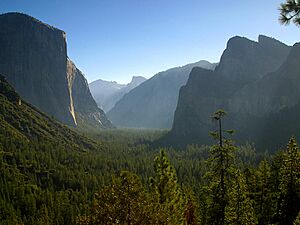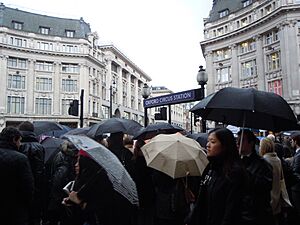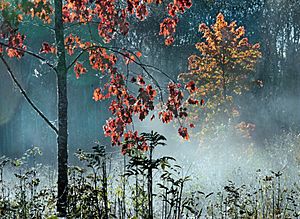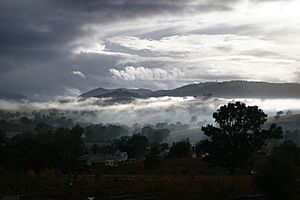Morning facts for kids


Morning is the part of the day between midnight and noon. It often refers to the time from sunrise until noon. The exact start and end times for morning can feel different for everyone. This is because they depend on your daily routine and how much daylight there is. However, morning always ends strictly at noon, when the afternoon begins.
Morning comes before the afternoon, evening, and night in the sequence of a day. Long ago, the word "morning" originally meant just sunrise.
Contents
Where the Word Comes From

The English word "morning" comes from older words like morwening and morrow. These words were used in Middle English.
It's interesting that English has different words for "morning" and "tomorrow." But in some other languages, like German, they use one word, Morgen, for both!
Morning Routines and Greetings
Many languages have a special greeting for the morning, like "good morning" in English. People often shorten this to just "morning." You use "good morning" to greet someone, not to say goodbye. This is different from "good night," which can be used when leaving.
The morning is usually when people get ready for their day. This often includes things like taking a shower and eating a meal. This first meal is called breakfast, because you "break" the fast from the night before. People also get dressed and prepare for work or school.
For some people, "morning" means the time right after they wake up. This can be true no matter what time it is on the clock. This idea became more common because of electricity. Electricity lets us be active even when it's dark outside.
Morning Activities
Many people use the morning to prepare for their day. This can include taking a shower or eating breakfast. After getting ready, many people head off to work or school.
Some people like to read a morning newspaper to find out what's happening in the world.
Images for kids
See also
 In Spanish: Mañana para niños
In Spanish: Mañana para niños
 | Delilah Pierce |
 | Gordon Parks |
 | Augusta Savage |
 | Charles Ethan Porter |




